How Paper Money Slowly Kills Us

Quite a bold article, right? There’s plenty of posts from economic and fringe sites about the dangers of fiat currency, but I’d like to focus on how fiat currencies slowly whittle away our motivation. We’ll look at this from a personal development and motivational standpoint.
What Is Money?
Before we get into what fiat currency is, we need to understand what money is. Ask ten people and you’ll get ten different answers. Money is certainly a contentious issue. It’s the most common reason for friction between couples and within families. It’s the main source of problems for most people. (Although, when we’re broke we say, “At least I have my health!”)
Money And People Are Inseparable
Most people would say that money is separate from them. That it comes from somebody else. But if we trace the history of money far back enough, we’ll see that money, or the idea of money, is inseparable from nearly all human behavior. That it is impossible for even the most primitive of people to live without some form of money. We’ll see that money is as important to any society as your blood is to your body.
Early Wealth
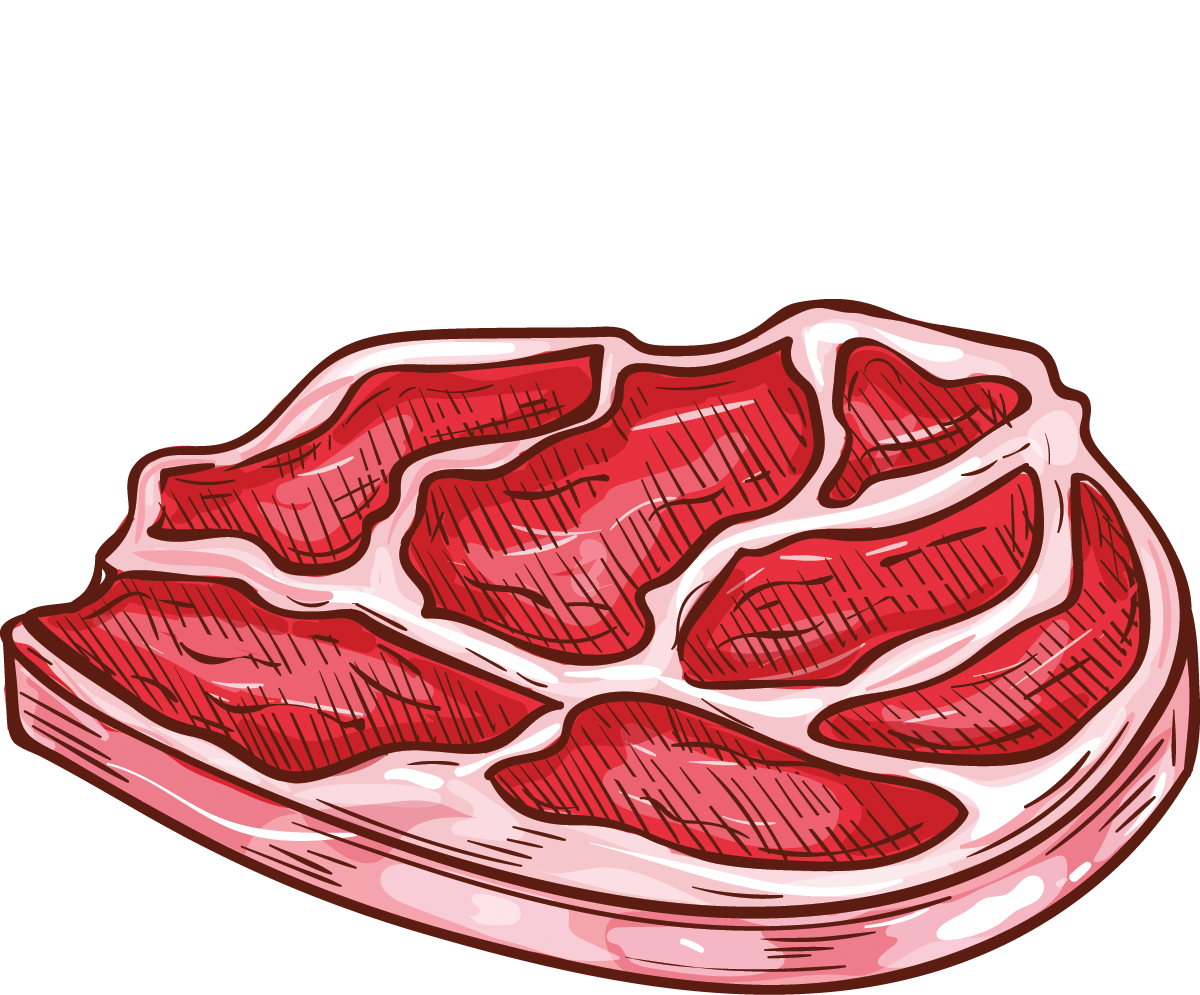
Way back in the day, before we humans invented agriculture, we still had wealth. Ancient humans still had a score keeping system to reward the best procurers of wealth. How did this happen? Consider a group of hunters going out looking for a kill. They could do this three basic ways.
Single Hunter – Small Kill
One way would be each hunter could go out and look only for enough for him and his family. He would find small animals, one or as many as it would take to feed his family for a couple of days. The most he could get would be to feed his family for three or four days, since meat, the most ancient from of human wealth, didn’t last that long.
Single Hunter – Big Kill
A single hunter could go after a big kill. He might sneak up on a zebra, get lucky with his spear, and drag it back to camp. Why would he do such a thing if he and his family could only eat so much? Maybe he wanted to share? Why would he do that? (Let’s not make any assumptions).
Many Hunters – Big Kill
It may be likely that a bunch of guys would go after a big kills and then share the meat equally. But sharing the meat equally would mean they each took an equal part in the kill. This may be possible, but it is not very likely. Why? For one, modern humans always organize according to hierarchies. Every time we get together with group of strangers, we self-organize. Tons of studies have been done to support this. (Cialdini).
Every group within our society is organized into some kind of hierarchy. Humans split from chimps about six million years ago. And chimps are seen to always exist in a clearly defined hierarchy. So it stands to reason that if we split from chimps, who always are in some kind of hierarchy, and we modern humans are always in some modern hierarchy, then we probably organized into similar hierarchies back in the days of hunter-gatherers.
Modern Observations
There are still a few people who live like ancient hunter gatherers. And to the extent they hunt, they hunt for the biggest thing they can find. And when the main hunter responsible for making the biggest kill brings it back home, he is treated like a rock star. By the men, and the women.
Early Wealth Score Keeping
The more productive one was, the more meat they brought back (and shared with everybody since meat wouldn’t last), the more recognition they got. Social status (and sex to an extent) was highly correlated with productivity. The more wealth (meat) one acquired for the tribe, the higher social status they enjoyed.
Early Farming
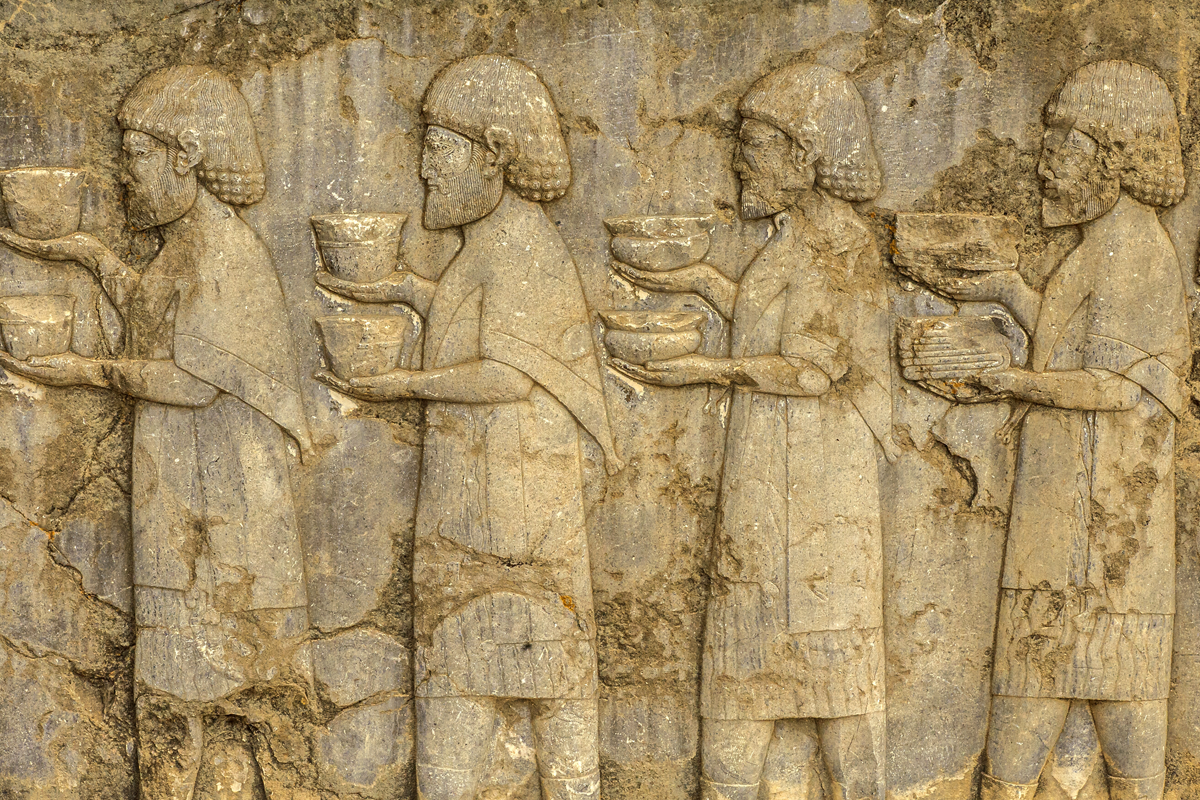
When hunters invented farming, there were plenty of changes. The biggest change was one could actually acquire wealth. Grain that was grown could be stored much longer than meat. It could be turned into plenty of things. Houses were permanent, as were possessions. More people lived in small areas than the early hunter gathers.
Barter To Money
The idea of working to build one thing, and then trade that thing for something else also became common. Hunting for meat meant you and your friends got to eat meat. But for farmers, they grew much more than they wanted themselves. They could trade the fruits of their labor for things they wanted. At first, barter was common. But barter soon turned into money.
Coincidence of Wants
Trading a peanut butter sandwich for a bag of chips on the playground is one thing. But trading a couple bushels of corn for a new roof isn’t so easy, since few people will want a bushel of corn. This is when people needed an intermediary thing to trade for. The farmer could trade his corn for this intermediary thing, and then trade that intermediary thing for his new roof.
Intermediary Thing
This intermediary thing could be anything, so long as everybody accepted it. And if it were small, durable, portable, and divisible, and scarce, even better. This was commodity money. This can be anything, really, but most societies have used precious metals (silver or gold).
But plenty of people have used plenty of things, so long as they have all the required characteristics (small, portable, divisible, scarce, and something everybody wants). Plenty of observations and studies have been done, and it seems that people tend to choose this commodity money spontaneously.
It’s one of those “collective unconscious” things. Nobody needs to talk about it, or have a meeting about it, or vote on it. It just happens. Even little kids when trading cards tend to do this. They’ll accept a card not because they want it, but because they know they can trade it for something else.
Gold And Silver For Thousands Of Years

Nearly all large societies, regardless of language or religion or time period recognized the value of silver and gold. These were the two most common commodity money systems, or currencies, used. These are also referred to as “hard money systems” compared to fiat money systems. (More on fiat below).
Benefits Of A Hard Money System
The benefits of a hard money system are plenty. For one, the more value you produce for others, the more of this hard currency you can acquire. In a hard money system, there are only three ways to acquire currency. One is to produce something of value that other people voluntarily pay you for in exchange. The second is to steal it. The third is to get by collecting taxes, which means you have to be the king.
This means that if you aren’t a king or a thief, and you’ve got a lot of money, this can only mean you are a very valuable member of society. Society appreciates you and your efforts. In a very real sense, this is very much like hunters and gathers. Whoever is the most productive, gets the most rewards.
In hunter gatherer societies, men would compete with each other to be the most productive. Whoever got the biggest kill would be the hero. Men would compete to be the winner, the one who provided society with the most benefit. It was impossible to not achieve rock star status without providing real value to society.
Similarly, under any hard money system, (non fiat), the only way to achieve a lot of wealth was to continuously provide value for others. Farming skills, leadership skills, boat building skills, organization skills, creative and artistic skills, all of these would provide value to others, otherwise people wouldn’t pay hard money in exchange for these skills.
Desiring Wealth Equaled Desiring To Provide Benefit

Both in hunter-gather societies (under which all our instincts were calibrated) and in farming communities, and large societies leading up to very recently, it was impossible to desire great wealth without simultaneously desiring to provide benefit to society. Even if somebody didn’t care at all about society, the only way to get wealth was to pay attention to the general needs of society and provide them.
Adam Smith and Enlightened Selfishness
Adam Smith described this in his book, “The Wealth of Nations.” He explained that the farmer or the butcher doesn’t get up at the crack of dawn and work hard all day because he is concerned with our desires. He does so because he wants our money. And he knows the only way to get our money is to first provide something we want and are willing to pay for.
Low Taxes
Even taxes are low in a hard money system. Since governments (both kings and democracies) can only spend what they collect in taxes, government budgets are always the focus of great concern. If they raise taxes too much, they’ll get kicked out of office (or killed in the case of greedy monarchs). Having a hard currency forced everybody to be frugal. It was like the entire country (or kingdom) living on a debit card. You could only spend what you earned.
Pressure Toward Continuous Improvement
Under a hard currency system, everybody, like today, tended to want more money. And the only way to get more money was to improve what you had to offer in exchange. This led to a continuous upward pressure in creativity, inventions, and productivity. In a sense, just like in hunter gatherer days, everybody was in competition with everybody else to be the most productive of society.
Kings and Taxes
It’s an obvious fact (that few people care to admit) that governments don’t produce anything. They get their money through taxes, and then they use this money to pay for the things under whatever social contract exists. Now, there’s never been a time when rulers and the ruled actually sat down and hammered out a “social contract.” But there are limits to what governments can get way with.
Quoting Jefferson
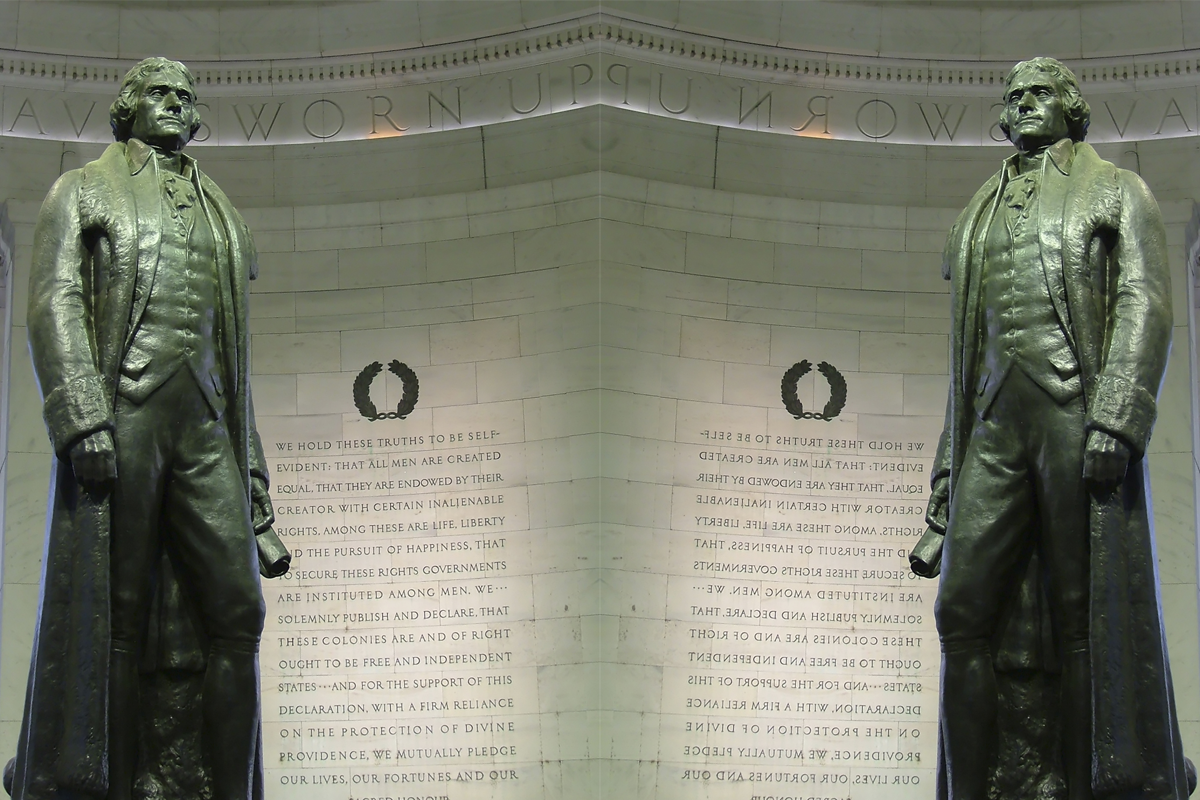
A favorite quote of Jefferson is that “The tree of liberty must be refreshed from time to time with the blood of patriots and tyrants.” Now, I don’t really think Jefferson was coming up with this idea out of a vacuum or coming up with a theory of government.
He was looking back over the past few hundred years of European Monarchies. And that was that every couple hundred years, the kings or other rulers would push things too far, the peasants would rise up, kill the fucker, and put somebody else in charge.
Hard Money Is Dangerous For Greedy Rulers
If the most taxes you can collect is 5%, and you’ve got to spend this like you promised, it’s tough to be a rich and greedy king. But what’s the point of being a king if you can’t be rich? There are a couple of ways. You can debase your currency, like the Romans did (leading up to their collapse). Collect all the coins, melt them down, and reissue them. The new coins are now only 60% silver instead of 90% silver. That’s an increase of the money supply (that the crafty rulers get to pocket) nobody knows about, since nobody back then could really measure the percent silver of the coins.
Debasing Hard Money Leads To Collapse Or Rebellion
But this is a dangerous game. Rome got away with it since they were the biggest empire on Earth at the time. For plenty of reasons, European monarchs weren’t as comfortable doing this. But they tried a whole bunch of other sneaky tricks, all designed to allow them more money than they could collect in taxes, or had to borrow.
Enter The Fiat
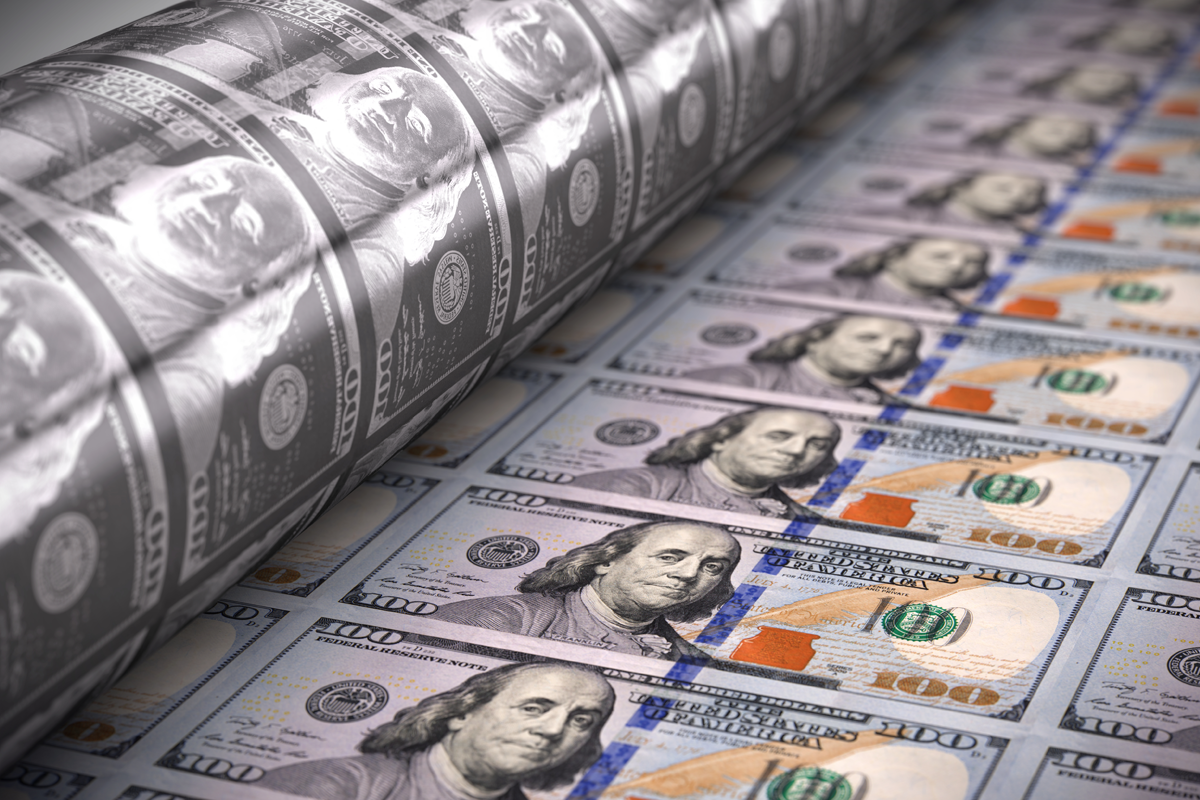
After all kinds of shenanigans, they finally got the whole world convinced that paper was just as valuable as gold. Talk about alchemy! How this has been supported for so long, and so widespread (essentially the entire planet runs on paper money, something the kings and emperors of history would see as pure black magic), is exceedingly interesting, but a little beyond our purpose. For the purposes of this post, understand that paper money has forever separated the idea that any amount of wealth must be tied to productivity. And unless you are a king or a thief, that productivity must be something that other people value, and are willing to pay their own money for.
Command Productivity
One thing fiat currency allows governments to do is decide what’s important. In any hard money system, the only stuff that gets produced is the stuff people want. But governments have created huge industries simply because they can print the money to pay for them.
Other Accesses To Riches
Before fiat currency, there were only three ways to amass wealth. Steal it, be the king (or some noble) or create stuff that other people wanted. Since most people weren’t thieves or kings, this meant most people in society were concerned with producing things other people wanted.
But with money flowing from the government printing presses (or more accurately the central banks printing presses) there is another way to get rich. And that is to be connected in some way. Remember those huge portions of society that were more or less created out of thin air (since the government can pay for them with printed money)? All you need is a job in those industries and you’re on easy street.
Easy Street?

OK, so you’re a teacher. Or a cop. Or a firefighter. Definitely not easy street. But there are some things that you definitely don’t have to worry about. You don’t have to ask your customers to pay you, and have to deal with them if they decide not to. If you are in any of these jobs, your salary is paid in taxes (which really is printed money since there is more debt on planet Earth than there is stuff).
Now, if you made bread for a living, you’d have to always be worried about your customers. But if you are a teacher, or a cop, or a firefighter, or even a doctor or nurse or somebody who works in a hospital, the idea of a “customer” asking for a “refund” is ludicrous. All of these jobs are where it’s very difficult to ever get fired. This is the first time in the history of the human race where the majority of employees in any industry didn’t have to get up every day worrying about satisfying customers.
Imagine being a farmer only a couple hundred years ago. If there was a bad season, your whole family was broke and hungry. On one hand, it’s nice we don’t have that fear. But (one of) the unintended consequence of getting rid of any worries about paychecks is that it obliterates productivity.
No Responsibility
Another side effect of living in fiat-land, is fewer people feel responsible. Imagine a political debate a couple hundred years ago. Where governments could only collect so much in taxes. They couldn’t promise much to the average person, since they only had a little bit of tax money to spend. They would argue about how much they’d lower taxes. They’d argue about how much they would spend the taxes responsibly.
But in the past fifty years, since all world leaders know they have an unlimited budget to spend (they pretend they don’t but they know they do) they can promise everybody everything. This has turned political campaigns into who can promise the most free stuff to the most people.
Growing Up In Media Rich Fiat Land

These means that if you grew up with TV and the Internet, (which most people alive today did) then your very impressionable childhood was filled with ideas that the government is the “mommy and daddy” of everybody. That’s it’s the government’s job to provide health care and jobs and affordable housing.
Now, this is nice were it true. But it’s not. Despite the ability of banks to print as much money as they want they can’t print stuff. Meaning the things we believe we have a “right” to are still things that other people have to make. If everybody believes that have a right to something, pretty soon their won’t be anybody making stuff. Sure, maybe one day we’ll have robots making all the stuff we need, but they won’t run by themselves.
End Point Of Fiat Currency System
Imagine this very broad and vague mind experiment. Suppose you did believe you had a right to food, and housing, and some kind of job, and health care. And a lot of other people did. Enough people believed in enough rights, that they simply stopped producing things. What would this mean?
The people that only received (and didn’t produce) would likely receive a bare minimum. Just enough to keep them from trying to overthrow the government. But the people that did control the robots, and everything else that required human labor, they would be making a lot of money.
Money Laundering System
Imagine it worked like this. You had a bunch of goofs in the government who kept promising people free stuff so the peasants would revolt. (Consider peasants rising up to kill their masters part of human nature since it’s been happening since the dawn of time). And suppose a very few people decided to keep working, and help design, build and maintain all the robots that would provide all the “free stuff” to people.
The receivers would receive fiat currency from the government. Then they would buy stuff, and it would end up at the companies that had to produce all the stuff. Plus all the people still making entertainment. This means that most of the money in the world would be in the hands of a very few select people. The owners of companies that made all the stuff (food, housing, electricity, entertainment, etc.), the highly skilled workers keeping the companies running, and the people in the government.
Which System Is Better?
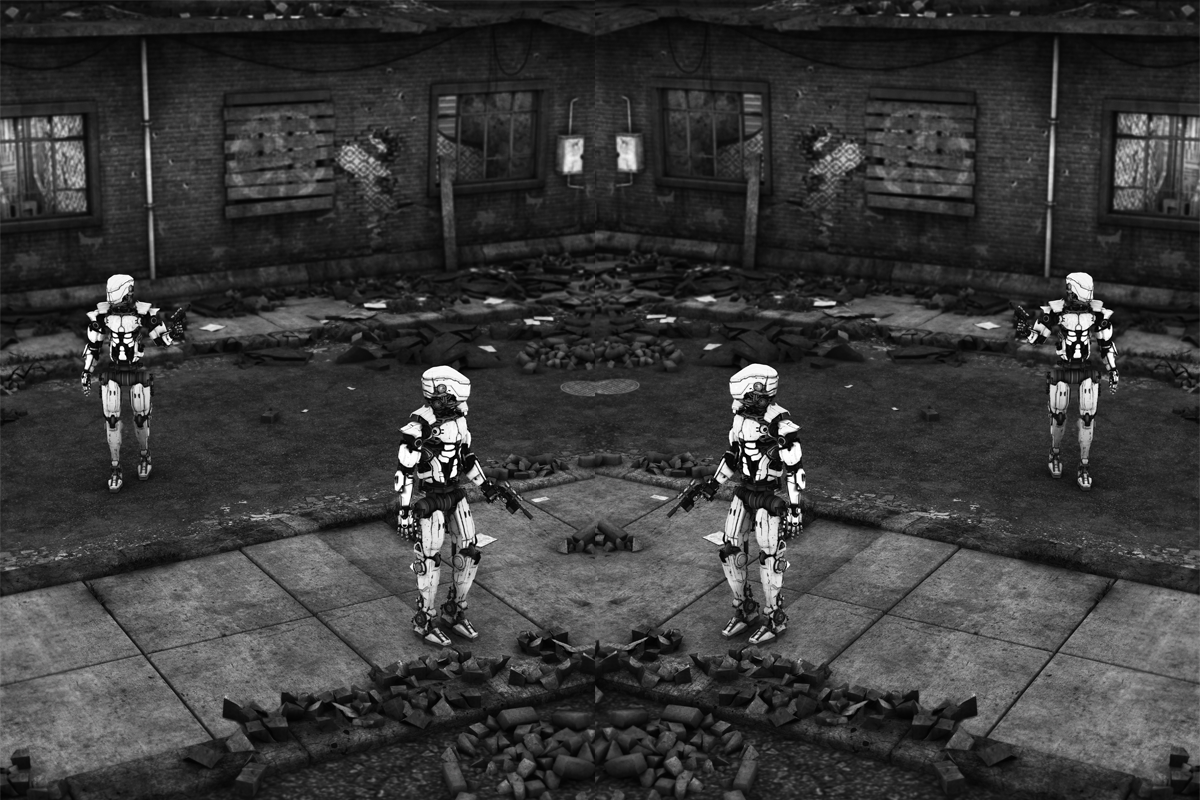
Now the billion dollar question. Which system is better, a hard money system where everybody is always worried about making stuff that other people will find valuable (and may not)? Or our current system, where the “chosen few” who work in fiat-fueled, government connected industries, never have to worry about customer satisfaction?
It depends on who you are, and where you are in either system’s timeline. Regardless of our system of government (monarchy, democracy, tyranny) so far, our record of creating a sustainable post agricultural society is ZERO. Every single large society, since the dawn of history, has collapsed. Unfortunately, we can’t really choose which system we live under. We can only choose how we decide to live under our current fiat system, which seems to be headed in the direction described above.
Believing you have a “right” to anything puts you in danger of having to accept what those in power decide to give you. Consider ditching any entitlement attitudes and seeing about getting as much out of the system as you can. (Without stealing!) It may seem nice to be in a position where people HAVE to pay you, but remember they are all secretly wishing they didn’t. (And most likely resenting you a lot.)
Understand the truth of our fiat currency system. Ask yourself this very difficult question:
If our fiat system suddenly vanished, and the only way to earn a living was to provide something of value for somebody that they voluntarily paid for, what would happen to your income?
Consider it a worthy and lofty goal to create an income that would be safe in any monetary system, fiat or not.
Learn More

Mind Persuasion has plenty of books and courses all designed to help you create a much better life for yourself.
Mind Persuasion Books
Mind Persuasion Courses